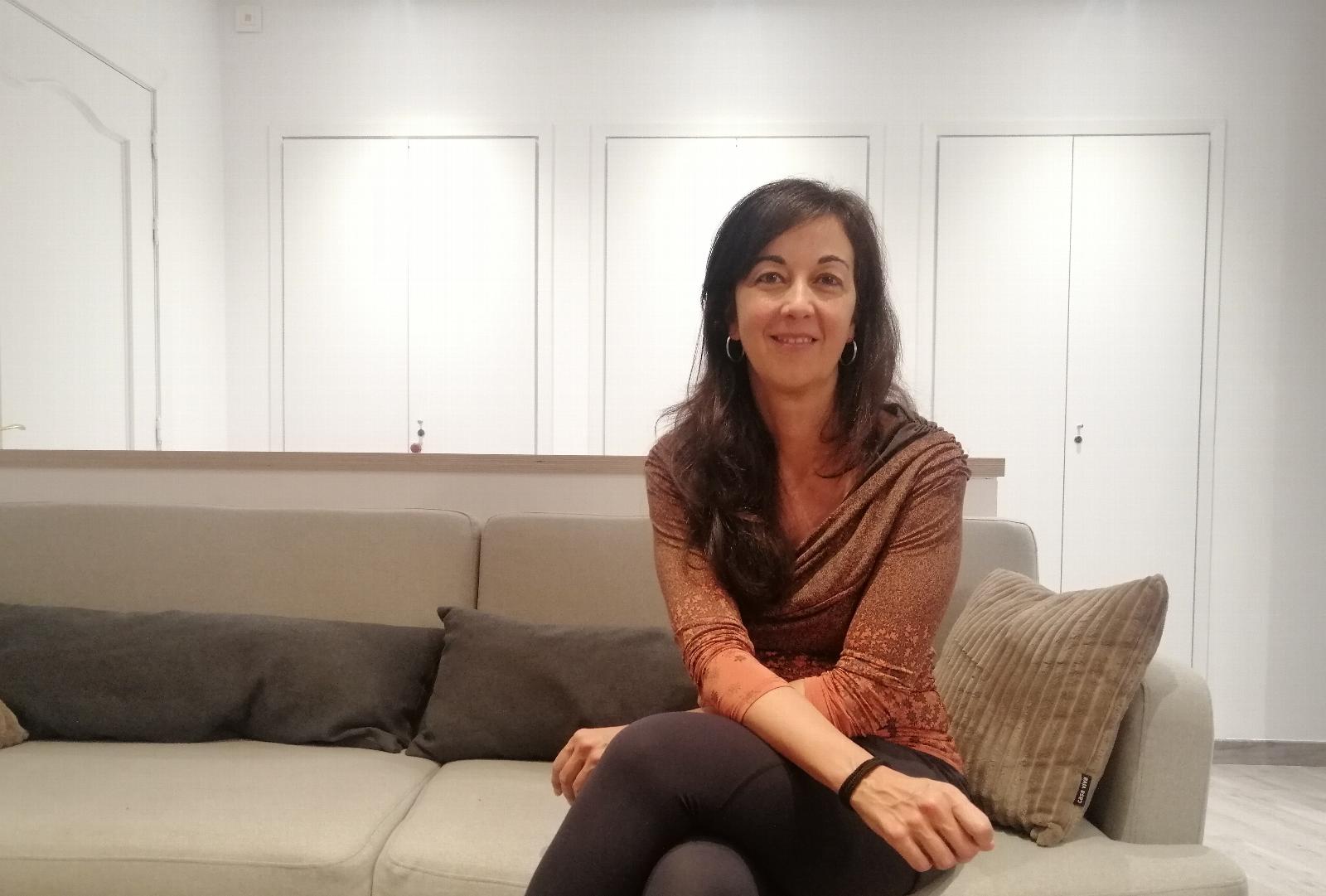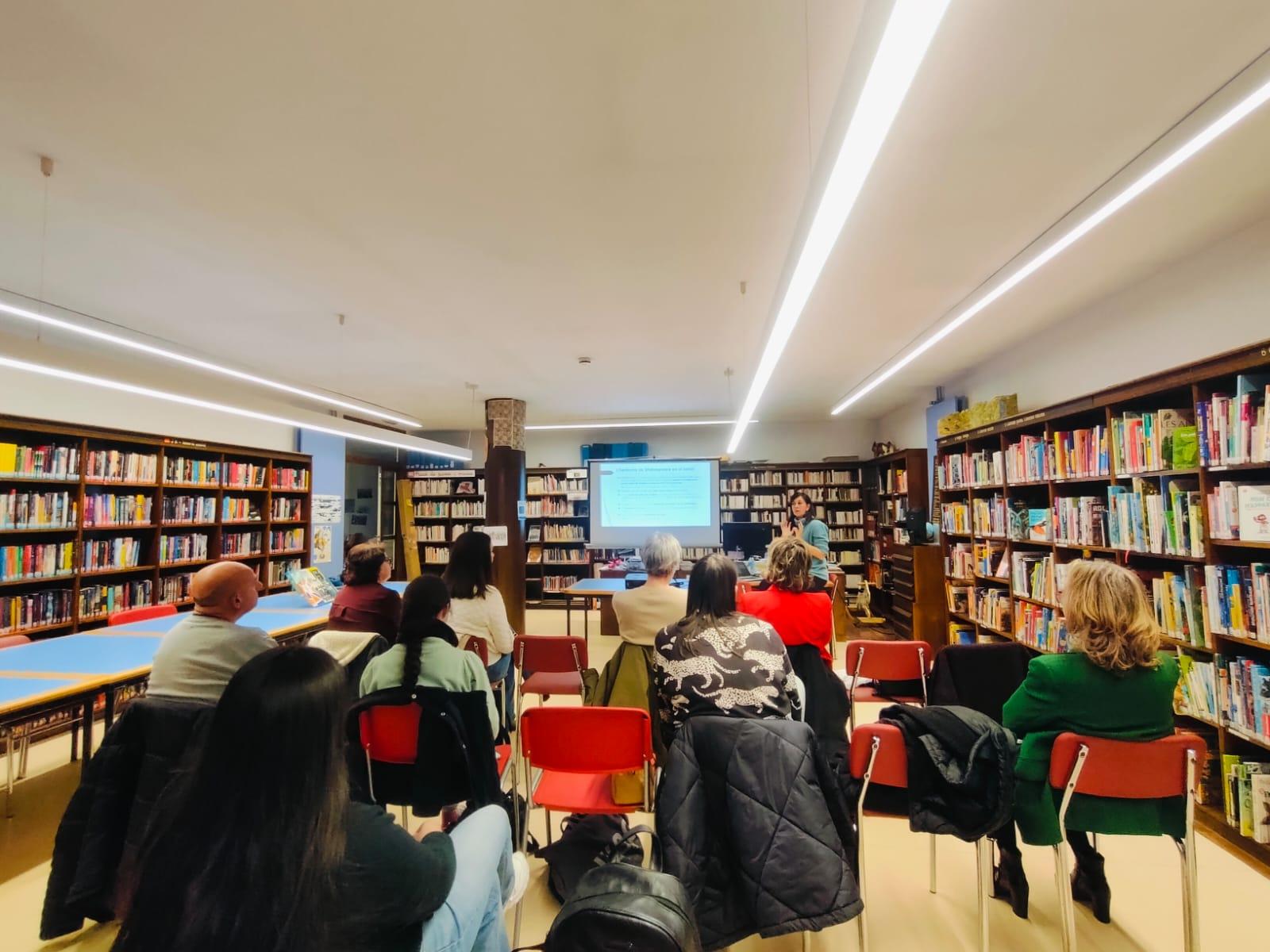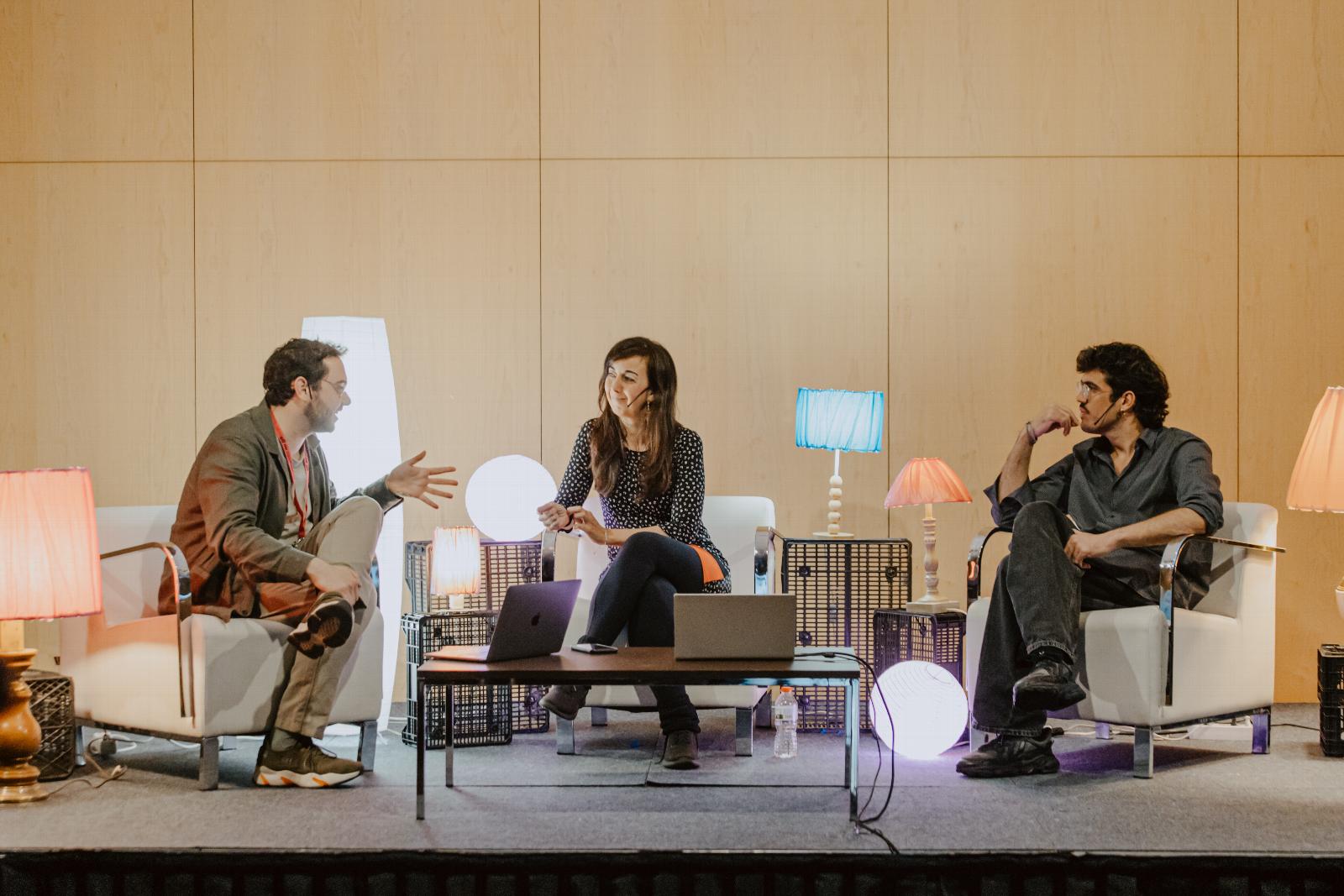Individual residencies / Andorra
MARTA GRAU RAFEL
From Saturday, 27 April 2024 to Tuesday, 21 May 2024
Bio
She holds a degree in audiovisual communication and a PhD in social communication from the UPF. She has written feature films and series, including Tros (nominated for best film at the 2022 Gaudí awards), Com si fos ahir (2019-2021), Tornarem (Gold Panda award, Gaudí award and ATV award, 2013), Cançó per a tu (nominated for a Gaudí award in 2020) and showrunner on Les de l’hoquei (2019-2020, CIMA equality award).
She has published the essay La mente narradora: la neurociencia aplicada al arte de escribir guiones (Laertes, 2017) and four novels: Surt el sol i encara plou (Empúries, 2013), Nits de guàrdia 1 and 2 (Fanbooks, 2013 and 2014) and most recently Una casa on tornar (La Magrana, 2022).
She teaches screenwriting at the UPF, URL and for several masters programmes (Master in Film and Television Fiction at URL and Master in Screenwriting at UdL-GAC), as well as development programmes like Acció Viver by Dones Visuals.
Project
La muntanya més alta no és a l’Himàlaia – Novel
La muntanya més alta no és a l’Himàlaia is her fifth novel, dealing with the experience of mourning as a child and as an adult. It tells the story of Dr Paula Roig, a 40-year-old gynaecologist who in spring 2020 decides to spend lockdown with her two daughters and new partner, Pep, in the mountain home she inherited from her dead wife Ruth, a great alpinist who died two years earlier in a mountaineering accident. Her unfinished mourning process will return in this extreme situation, especially when her four-year-old daughter starts to say she is speaking with Ruth at night.
An intimate psychological thriller with a smattering of fantasy, from a vitalist standpoint, Marta Grau wanted to look at taboo subjects like death and mourning, focusing on how to carry on after life is cut short by a traumatic accident. Furthermore, she wanted to showcase the passion for mountaineering of female alpinists, who have a long history in this sport but much less visibility than their male counterparts.
Go to where the silence is and say something
(Amy Goodman)
My experience at Faber Andorra really helped me get stuck into my new novel. I needed time to hole up alone, creatively, and disconnect from other projects and obligations in Barcelona to get a feel for the characters in my story and get back into their voices. The residency allowed me to organise my own time based on my needs, so I wrote for three hours first thing in the morning, then went out to walk for a bit on the trail that went right by my residence to clear my head before eating and prepare to tackle the four more hours of writing that I had waiting for me after lunch. That helped me draw up a new outline, design and understand my characters, and write the first 50 pages to find the narrative voice of the story.
I applied for the Faber Andorra residency because the novel takes place in the Pyrenees and a high-mountain environment that is very similar to the area around La Massana. It was extremely helpful to experience the characters' daily lives, commune with nature and feel their fascination for the mountains and the unpredictable weather in this region (often with all four seasons in one day). I have to say, as an avid hiker and mountaineer, the setting was also perfect for ruminating on the writing while walking in my free time. Andorra has several GR (long-distance trails) and the Camí Ral (Royal Road) that crosses the country from top to bottom. Not having a car during my stay meant I could explore the region on foot, walking to Andorra la Vella, Ordino, Sornàs and Ansalonga.
My 25-day stay was split in two, however, as I took part in the Ull Nu festival in the middle. There, I gave a talk with filmmaker Alejandro Marín and followed up on the screenwriting lab projects I was mentoring. Ull Nu was a fantastic experience, where I got to see the audiovisual scene in Andorra first hand, meeting some of the country's professionals and observing the opportunities for co-production with Catalonia.
Also, thanks to Sandra Colell and Meritxell Blanco from the Ministry of Culture, I had several cultural experiences that I highly recommend if you want a deeper understanding of the country, including visits to Casa Rull and Casa d'Areny-Plandolit, as well as a talk at the Public Library of the Andorran Government that was very gratifying thanks to the interaction with the audience, sharing many ideas on the writing process for the audiovisual world and in general.
In short, Faber Andorra is a great place to stay for a fruitful deep dive into your own creative process and there is no question that I will be back in Andorra to walk and seek inspiration again!



